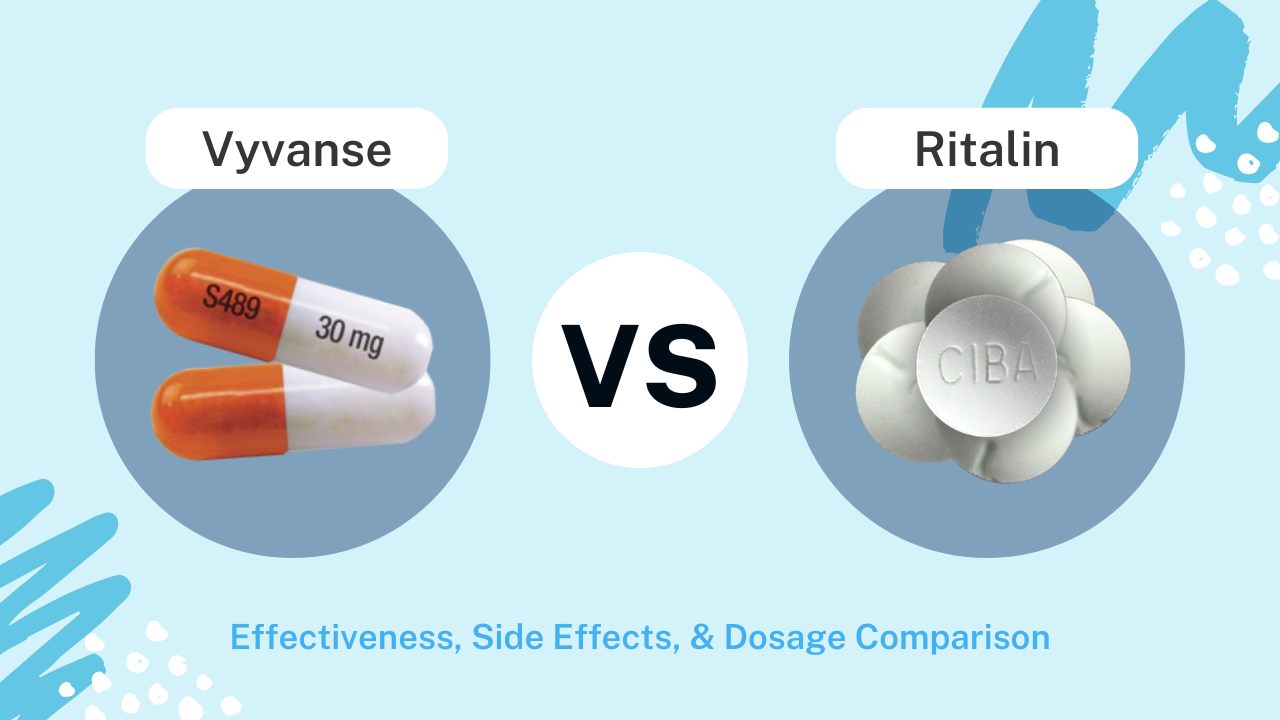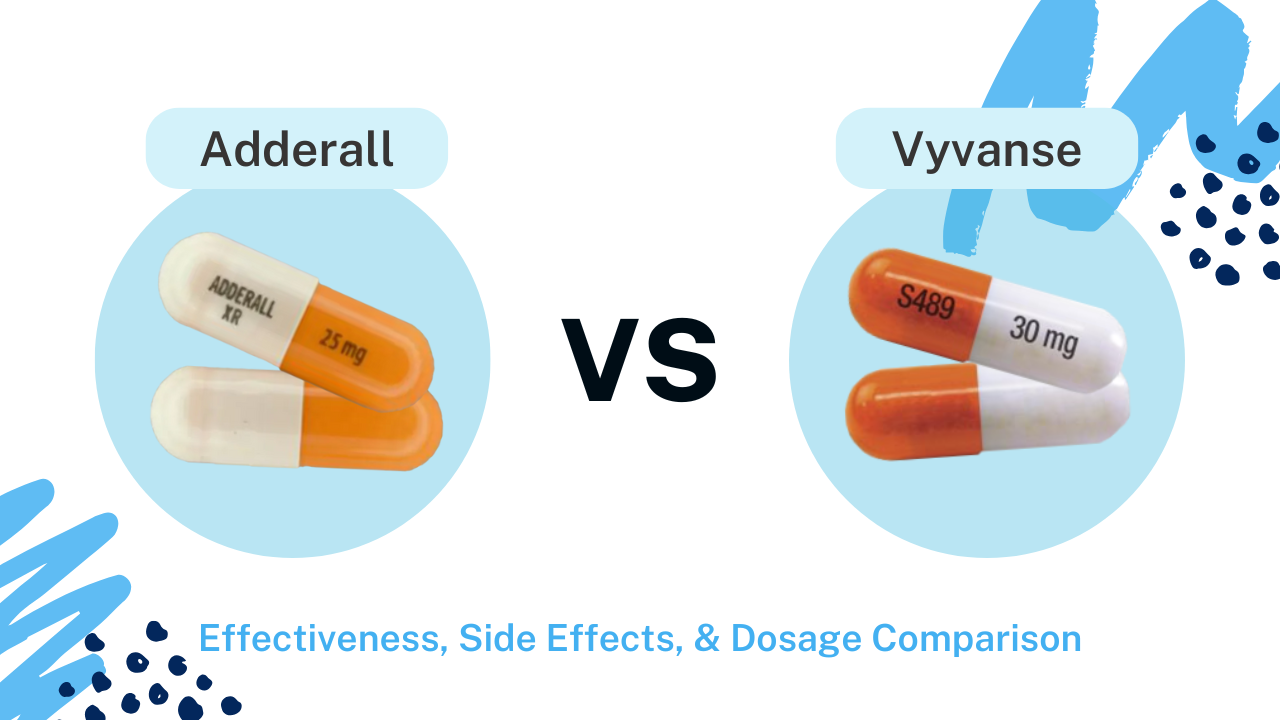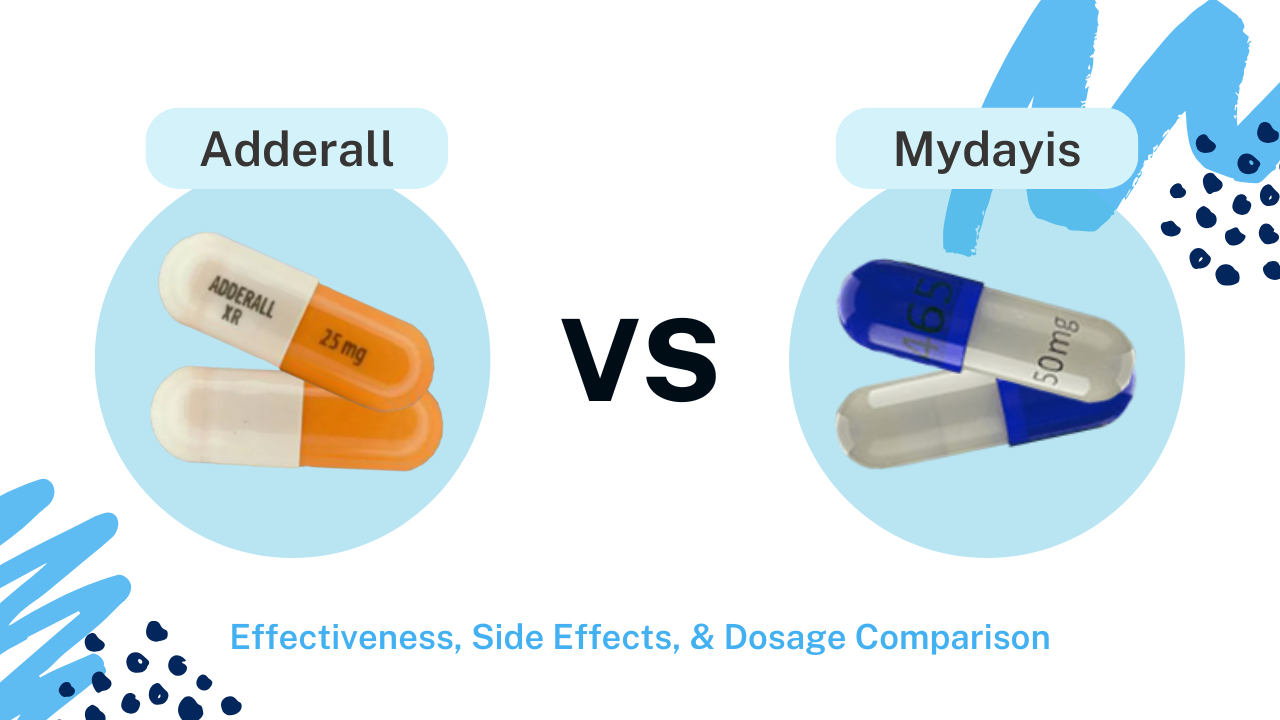Same Day Online ADHD Diagnosis
ADHD assessment?
Why ADHD Medication Helps Adults
Attention-deficit/hyperactivity disorder (ADHD) is a condition that causes attention and focus problems for adults. ADHD affects specific areas of the brain, particularly the prefrontal cortex, resulting in the dysregulation of dopamine and norepinephrine.
Dopamine and norepinephrine are two neurotransmitters in the brain that influence behaviors and executive functions involved in impulse control, planning, attention, and focus. To learn more about ADHD and treatment options specifically for adults, check with the Mayo Clinic’s ADHD in adults treatment overview.
Adults with ADHD may lose their keys or phone or miss important meetings or deadlines, and can really feel frustrated due to their symptoms. In order to live a life without these symptoms, it is important to get properly diagnosed and treated for ADHD, according to the CDC.
ADHD Medication for Adults Helps with Executive Functions
ADHD medication helps to improve focus, memory, and executive functions for adults with ADHD. Medications for ADHD in adults are typically stimulant or non-stimulant options and can truly improve your quality of life.
If ADHD symptoms are causing chaos in your day-to-day life, start an online consultation with ADHD Advisor today. ADHD Advisor is a service that connects adults aged 18 and older with experienced professionals who can guide you through the diagnosis and treatment process, ensuring you find the most suitable medication and dosage for your condition.
Let's take a closer look at ADHD in adults and the medication options available.
Types of ADHD Medications for Adults
The FDA has approved two types of medications for adults with ADHD: stimulants and non-stimulants.
Stimulants
Stimulant medications are often the first choice and are the most common medication type for ADHD. Stimulants are the most effective at managing symptoms of inattention, focus issues, and impulse control.
Stimulant ADHD medications for adults work to manage symptoms by increasing the levels of dopamine and norepinephrine in the brain. Many stimulants "stimulate" receptors, causing more dopamine to be produced. They also block the reabsorption of norepinephrine, allowing the brain to utilize these two naturally occurring chemicals better. Norepinephrine and dopamine play a major role in focus, attention, and other executive functions that disrupt the lives of individuals with ADHD.
Most stimulant medications for ADHD in adults are available in immediate-release and extended-release formulas. Immediate-release formulas provide rapid symptom relief, which typically lasts between 4 and 6 hours. Immediate-release ADHD medications are usually taken multiple times a day.
Extended-release formulas are designed to be taken once daily, typically in the morning. These formulas slowly release the drug into the body, providing symptom relief throughout the whole day, usually for up to 12 hours. Extended-release ADHD medications for adults are generally a good choice for those who tend to miss doses and want an all-day relief option taken once a day.
Some common stimulant medications for ADHD in adults include:
- Adderall XR/IR
- Vyvanse
- Ritalin/ Concerta
- Focalin
- Zenzedi (off-label)
Non-Stimulants
Another ADHD in adults medication option is non-stimulants. Non-stimulant ADHD medications are a newer choice for adults with ADHD who can not tolerate stimulants or who have other conditions that are not a good fit for stimulants.
For example, people with substance use disorder (SUD) are often better suited to take non-stimulant medications. Individuals with heart conditions or severe anxiety are also usually better off with non-stimulants. Non-stimulant ADHD medications for adults are not quite as effective at managing symptoms but do provide some relief, especially for inattention and hyperactivity.
Non-stimulants work by increasing the brain's access to norepinephrine. Various classes of drugs can be used as non-stimulant medication for ADHD in adults.Alpha-2 adrenergic agonists, selective norepinephrine reuptake inhibitors (SNRIs), and some antidepressants are used to manage ADHD symptoms.
Non-stimulant medications for ADHD in adults, like SNRIs, Strattera (atomoxetine), and Qelbree (viloxazine), contain active ingredients that primarily help the brain utilize norepinephrine without stimulating the release of dopamine. Some of these medications may also affect serotonin levels, which can help regulate emotions.
Alpha-2 adrenergic agonists, such as Intuniv and Kapvay, also help regulate norepinephrine, but in a different manner than the SNRIs. Kapvay (clonidine) can help adults with ADHD who have insomnia.
What Is the Most Effective ADHD Medication for Adults?
You might be wondering, "What is the most effective ADHD medication for adults"? The answer is that there is no universal "best" ADHD medication for adults, as it all depends on individual brain chemistry and symptoms.
Stimulant medications like Vyvanse and Adderall are among the most prescribed medications for adults with ADHD. However, the most effective dosage for you will be determined by you and your doctor, often with a little trial and error to adjust it.
Some adults with ADHD respond better to methylphenidate-based medications like Concerta or Ritalin. Some people may not tolerate stimulant medications and can respond better to non-stimulant medications.
This is why it is so very important that you work with a licensed provider to accurately diagnose your ADHD, and then work together to find the best medication for your symptoms and unique chemistry. CHADD has a great medication management resource providing more information about ADHD medication options.
Stimulant vs. Non-Stimulant ADHD Meds: Pros & Cons
As with any medication, stimulant and non-stimulant ADHD medications for adults have pros and cons. Let's compare these two classes of ADHD medications adults can choose from and see which may work best for you.
Pros and Cons of Stimulants
Some of the pros of stimulant medications for ADHD in adults include:
- Rapid onset
- Often highly effective
- Available in immediate and extended release forms
Some cons of stimulant medications include:
- May have more side effects such as insomnia, appetite loss, or anxiety
- High risk for abuse as they are controlled substances
- May increase heart rate or blood pressure
Pros and Cons of Non-stimulants
Some of the pros of non-stimulant ADHD medication for adults include:
- They may be a better choice for people with co-occurring mental health or heart issues
- Less abuse potential
- Can be taken with stimulants as an adjunct therapy
Some of the cons of non-stimulant medications include:
- It can take up to six weeks to show signs of symptom improvement
- They may be less effective at symptom relief
- Can cause side effects such as drowsiness, dizziness, or nausea
When to Reach Out and Change Medication
Regular follow-ups with your healthcare provider are crucial to ensure the effectiveness and safety of your ADHD medication. During these appointments, you can discuss any side effects or concerns you may have, and your doctor can make any necessary adjustments to your treatment plan.
If you have too many unwanted side effects, medication doesn't seem to be helping, or you are concerned about abuse, then reach out to your professional, and they can try you on something else to see how you do.
The best ADHD medication for adults varies drastically, and each person will be different, so it's a good idea to be patient and remember that your clinician can try you on two or three different medications before you find the one that clicks with your chemistry.
What's the Best ADHD Medication for You?
Let's take a look at some of the factors to consider when trying to decide which ADHD medication is best for you. ADHD Advisor can help personalize a treatment plan based on your unique needs, so it's essential to inform your provider if you have any of these concerns.
Co-Existing Anxiety or Depression
ADHD has a high co-morbidity rate and is often experienced alongside anxiety or depression.
If you have a "dual diagnosis," your treatment plan may look different from someone who doesn't. There are even some antidepressants like Wellbutrin that can treat both ADHD and depression or anxiety.
Some people may respond well to stimulants even with co-occurring depression, or both conditions may be treated separately. It's always a good idea to let your provider know of any current mental health diagnosis so they can treat you accordingly.
Heart Health or Blood Pressure Concerns
If you have heart problems or high blood pressure, you may not be a good fit for stimulants, as they can cause increased risk of hypertension and arterial disease. Some non-stimulant medications for adults with ADHD, like clonidine, can help to treat high blood pressure too.
You and your doctor can work together to come up with the best treatment option, and if stimulants are chosen, your heart and blood pressure will be monitored.
Substance Use History
Stimulant drugs are Schedule II controlled substances with a high potential to develop a substance use disorder. Therefore, people with SUD may not be good candidates for stimulant medications for adults with ADHD.
Instead, non-stimulant options may be a better route as they have little to no abuse potential. If you have ever struggled with alcohol or drug use, please let your provider know so that they can come up with the best treatment options for you.
Insurance and Cost
You may determine which ADHD medication for adults is best for you simply based on insurance or cost factors. Some ADHD medications can cost thousands each month without insurance, though generics are often cheaper than brand-name. Some insurance providers may only cover certain ADHD medications as well.
Most stimulant ADHD medications for adults will require a pre-authorization before insurance will cover the cost. Some generic ADHD medications can be quite affordable, even without insurance. If insurance or costs are key factors, let your doctor know so they can choose an option that is more affordable for you.
ADHD Advisor: Helping You Find the Right Medication
ADHD Advisor can help you find the best ADHD medication for adults that works best for you. We work with licensed medical providers who can:
- Diagnose ADHD remotely via telehealth (adults only)
- Prescribe stimulant or non-stimulant medications for adults with ADHD legally in your state
- Provide monthly follow-ups for dosage adjustments, therapy, and monitoring
- Ensure safe, HIPAA-compliant treatment virtually on your schedule
Choosing the right ADHD medication for adults is not something you should try to do on your own. If you think you have ADHD or are looking for treatment options, take our short quiz to see if you qualify for an evaluation with one of our licensed professionals.
Your provider will review your medical history and symptoms to determine the best medication option and create a personalized treatment plan tailored to your needs.
You may try a medication that doesn't seem to work before finding the right one, and that's why monthly follow-ups are so vital. Once your provider finds the right medication and the correct dose, you'll simply check in each month to ensure symptoms are managed efficiently and continue living your life with fewer behavior disturbances.
FAQs About ADHD Medication for Adults
What's the difference between Adderall and Vyvanse?
Adderall and Vyvanse are both stimulant ADHD medications adults can take to manage symptoms. They contain different active ingredients. Adderall is a mixed-salts formulation, and Vyvanse contains lisdexamfetamine.
Vyvanse is a pro-drug that releases the medication into the body slowly. Adderall is available in both immediate-release and extended-release formulas. A licensed medical provider will help determine the best medication for your ADHD.
Can I take ADHD medication as an adult even if I wasn't diagnosed as a child?
Yes, you can be diagnosed with ADHD as an adult, even if you weren't diagnosed as a kid. In fact, many adults are diagnosed with ADHD for the very first time.
You will need to schedule an appointment to have a thorough evaluation to determine if you have ADHD. You can not simply take someone else's ADHD medication just because you think it will help, as that is against the law. Likewise, you will need to get your own diagnosis from a licensed provider and be prescribed Adderall in order to take it.
How long does it take for ADHD meds to work?
The time that it takes for ADHD medications to work depends on the type of medication and the formula. There are instant-release and extended-release formulations of stimulant medications for adults with ADHD.
Non-stimulant medication options may take between 4 and 6 weeks to start seeing any improvements. If you are taking any ADHD medication and are not seeing any improvements in your symptoms, speak with your provider, and they may adjust your dosage or try you on a different medication.
Do ADHD medications change your personality?
ADHD medications do not change your personality directly. However, people may begin to see a drastic change in your behavior, which could impact your mood. People with ADHD whose symptoms are better managed may start to become more joyful.
However, some ADHD medications can cause irritability; it's important that if you experience drastic mood shifts, you speak with your doctor.
Are there natural alternatives to ADHD medication?
Yes, there are natural alternatives to ADHD medication, though they may not effectively treat symptoms as well as ADHD medications. Lion's Mane mushroom and Bacopa monnieri have been shown to alleviate some symptoms of ADHD in certain studies.
Final Thoughts: Treatment Is a Process
ADHD treatment is not a quick fix but a therapeutic healing process. The best ADHD medication for adults is subjective, and each person's treatment plan will be unique. You may try two or three different medications before you find the one that clicks with your brain chemistry, and that's totally normal.
It's essential not to get overwhelmed or disheartened, as you and your provider will eventually find what works best for you. After you get the correct medication and dosage, you will be well on your way to living a life with fewer symptoms of ADHD.
Remember, do not self-medicate or borrow pills from others, as it is dangerous and could potentially lead to jail time if caught. Reach out to a licensed provider for a proper evaluation, and if you are diagnosed with ADHD, allow them to correctly find the medication that works best for your body.
If you think you have ADHD and are ready to get help, then take our quiz now. If you qualify for an evaluation, our licensed clinicians at ADHD Advisor will help you find the perfect treatment plan tailored to your needs. You can schedule follow-ups around your life and do it all from the comfort of your own home with telehealth. Get started today by taking our short quiz!





.svg)
















